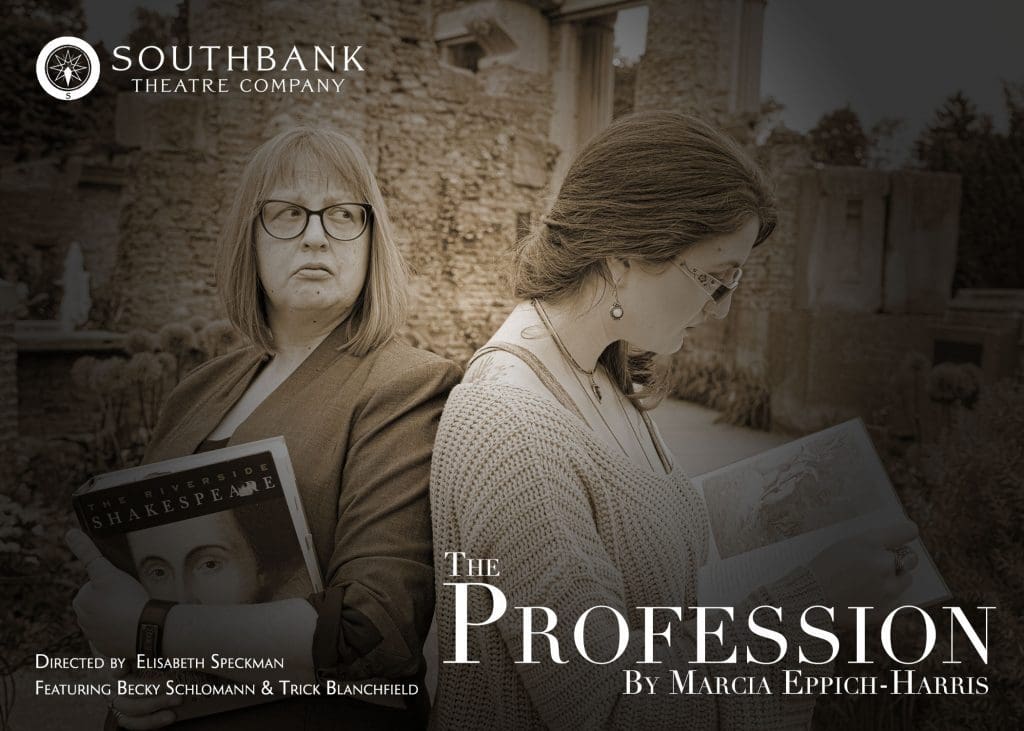

Some thoughts on the play and its evolution by Marcia Eppich-Harris. Get tickets here!
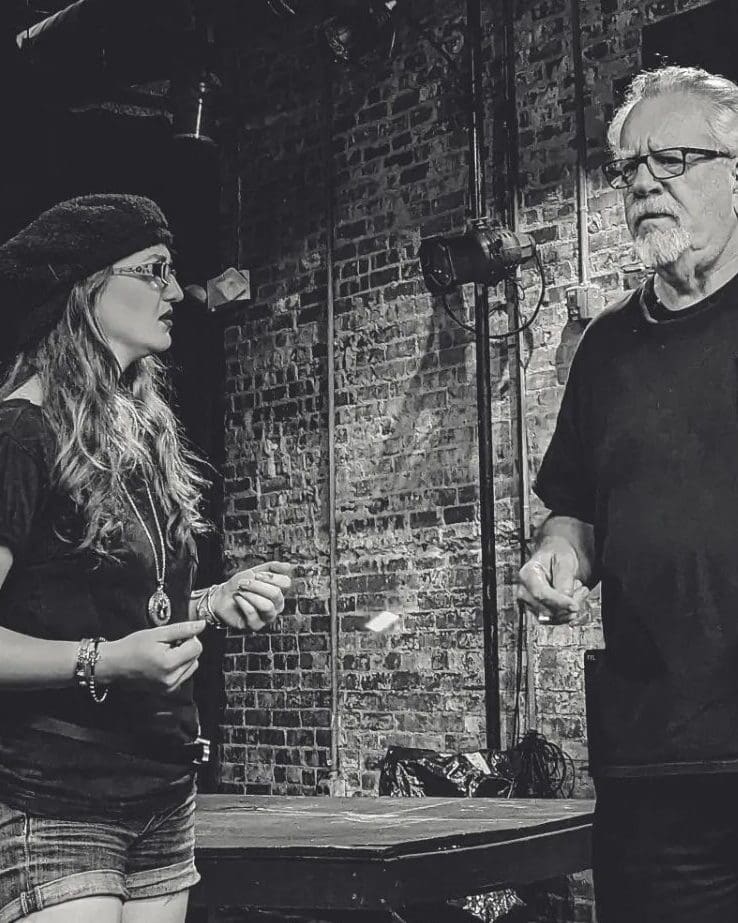
The Profession is the first full-length play I’d ever written. I’d started writing it in June of 2019 and finished a draft just in time to have a table read with the Indiana Playwrights Circle (IPC) in September 2019. It was accepted for the Indianapolis New Play Festival that Fat Turtle Theatre Company was putting on in May 2020. When Covid hit in March that year, and everything shut down, I was unsure if The Profession would ever see the stage.
It wasn’t just Covid that shut down this play, though. I was uneasy with it from the beginning. Much of the plot is based on my experience with being an academic. I tried to distance myself from the show by making the main character, Valerie, older – nearing retirement – and single. But the motivations were all wrong, and I knew it. I revised it relentlessly, using IPC as a resource, as well as dramaturge Andrew Kramer, and countless other readers, writers, and actors – including Becky Schlomann and Trick Blanchfield. The play evolved and changed dramatically over time, but I still couldn’t bear to allow Valerie’s character to become who she really was – a version of my own experience.
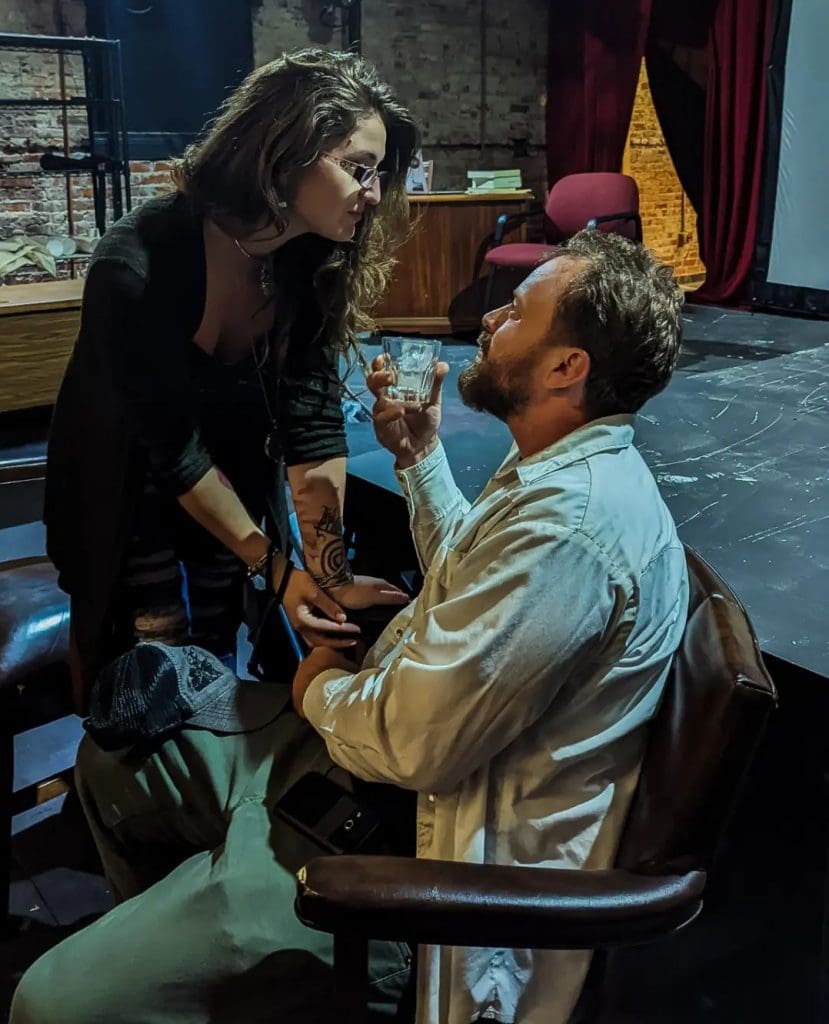
Nevertheless, other people seemed to like the play. It was a semi-finalist in the Campfire Theatre Festival in 2020 (Idaho), a semi-finalist in the Athena Project in 2021 (Colorado), and a finalist in the Epiphanies New Play Festival with Wild Imaginings in 2021 (Texas). Wild Imaginings did a staged reading of the play, and people seemed to love it, but with the abortion laws changing in Texas, the theatre told me that The Profession was too controversial for them to fully produce.
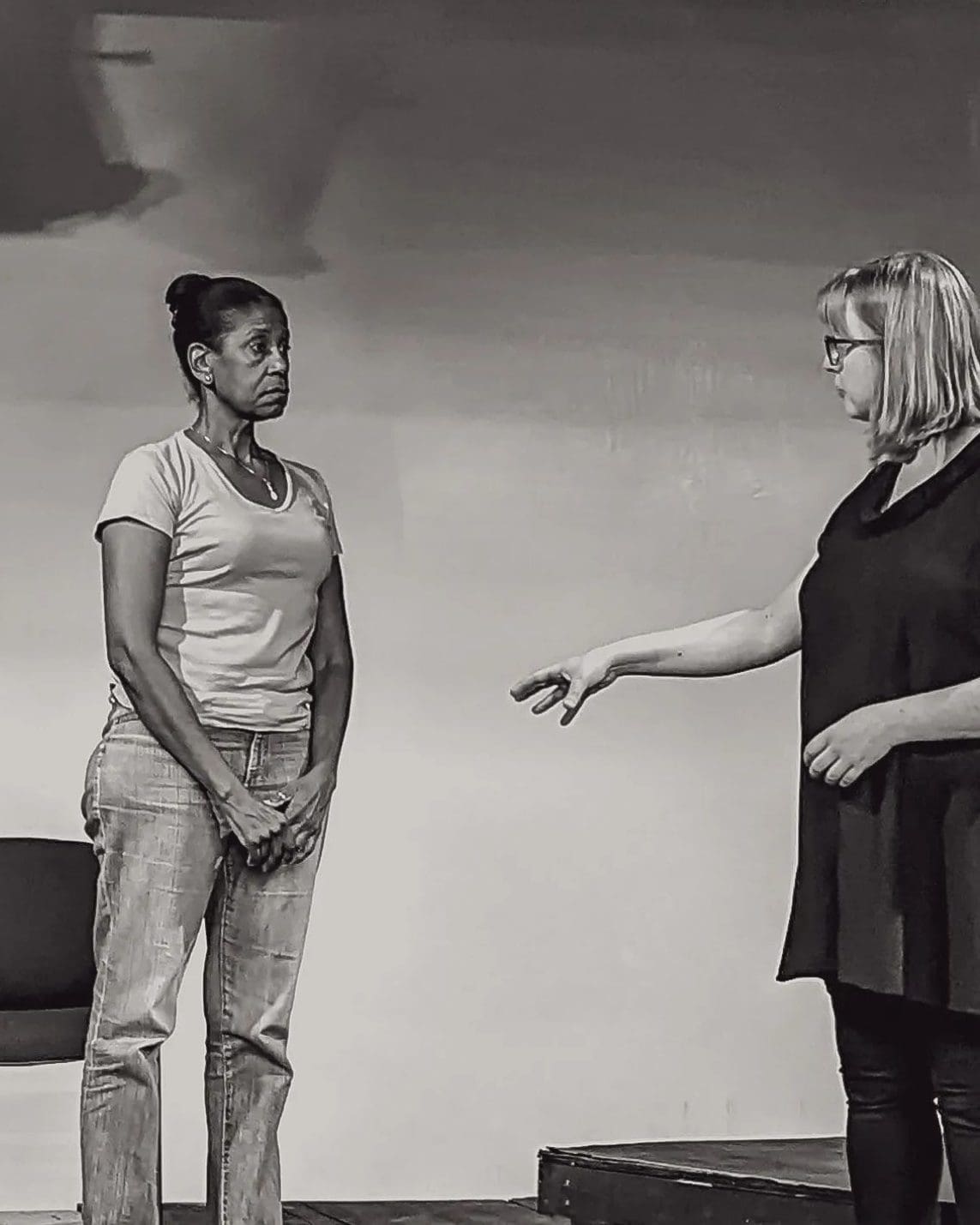
Then, Eric Bryant – originally cast as Mark in 2020 – asked me if Southbank would be interested in working on new play development with him. He’d worked in new play development in New York for a long time, and he missed doing that work. I jumped at the chance and asked if we could start with The Profession. Eric read a new draft and gave me generous notes. After sitting with it for a few days, I told him that I was going to radically revise the play one last time and see what he thought of it.
So I sat down one more time to rewrite the play. After fifty or so drafts and nearly three years of ruminating, I finally decided to make Valerie someone closer to my experience in higher education, still fictional but more honest. When Eric read the new version of the play, he seemed to think that it was much better, tighter, than the original. We did a staged reading at Mud Creek on July 1 and got feedback from the audience afterward. I made some adjustments after that reading, and what you’re seeing tonight is the result of three years of major development.
What I’ve learned in the process of writing and rewriting this play is that the play isn’t about me. It’s about the dramatic questions raised in the first monologue: Who controls women’s bodies and who controls their destinies? Do women have agency in this world or are we simply at the mercy of the men in charge? Recent developments in politics have made our society ask these same questions, and perhaps we will always ask. But the past is not our destiny, as Valerie says at the end of the play. We can move on from our traumas and not let them be the only things that define who we are.
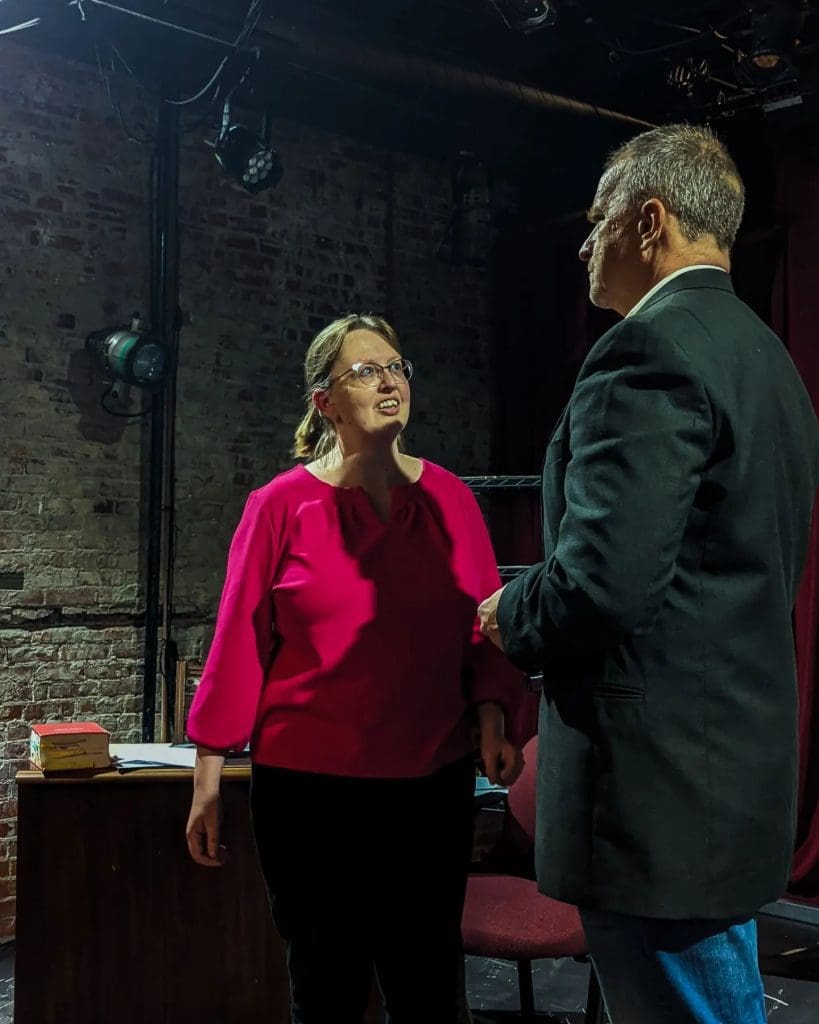
I hope the takeaway from The Profession is to be more empathetic with each other. All of us are struggling – some more than others. Our institutions – like higher education – need to recognize that they are part of the problem. How might colleges be improved with less emphasis on money (via sports, expensive dorms, and new buildings) and more emphasis on the betterment of society? Patriarchy is part of the problem, and it hurts men just as much as it hurts others. How might Mark and Paul have acted differently if they didn’t feel pressures from society to be “real men” and fit into their assigned roles? If there is a real villain in this play it is a combination of capitalism and patriarchy.
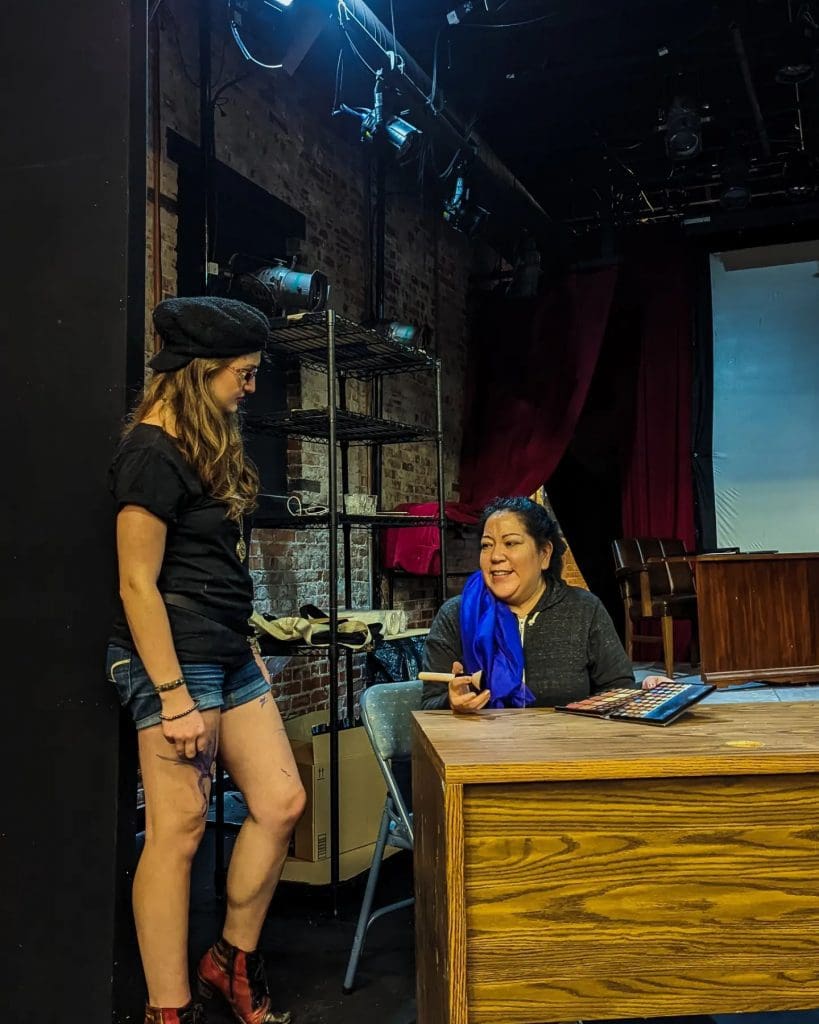
When you look up the benefits of higher education on Google, you find a lot of articles saying that education has a strong economic impact on our world. While that may be true, that’s not what I value when contemplating my years as a student and as a professor. I remember teachers who cared enough about me to read my creative writing outside of class time. I remember reading books that inspired me – that made me want to be a better person. I remember working through difficult problems and growing as a result. I remember students who confided in me when they were struggling, students who couldn’t help falling in love with literature, and students who changed before my very eyes as a result of their college experiences.
There is more to education than its economic consequences, yet we have become so focused on the money involved that we forget that students like Marina weep at the end of beautiful poems like Paradise Lost. We forget that our souls are invested in the process of becoming who we are – and that we cannot become self-actualized individuals without reaching outside our own experiences, reflecting upon big ideas, and connecting with others. That connection is also what this play is about – that without an earnest connection with others, we are lost. Valerie and Marina find that platonic, intellectual connection and as a result are healed.
I dedicate this play to the teachers who made a difference in my life and to the students whose curiosity and love of learning were never lost. If we, as a society, stopped focusing so much on the economic benefits of education and instead established personal growth and life-long learning as our goals, what wouldn’t we be able to achieve?
Join us at Fonseca Theatre, September 15-25 for the world premiere of The Profession! Tickets are available here!
Share :
Southbank Theatre Company is a nonprofit, tax exempt 501(c)3. That means every financial contribution is tax deductible! No matter how big or small, your contribution supports theatre artists and the stories they bring to our audiences. With your help, we will be able to build a sustainable, creative company in Indianapolis that will celebrate emerging and established artists from all backgrounds.